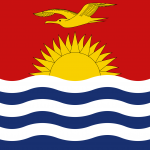Bhutan may be renowned for its Gross National Happiness and deep-rooted spirituality, but it also boasts a quietly flourishing alcohol scene. From centuries-old traditional brews like Ara to modern craft beers, small-batch wines, fruit-based spirits, and even vodka, Bhutan offers a unique and often surprising drinking culture that reflects its rich heritage and natural bounty.
Table of Contents
Religious Influence & Dry Days
In Bhutan, religious beliefs deeply influence daily life, including regulations around alcohol consumption. Tuesdays are designated as “Dry Days” nationwide, during which the sale and public consumption of alcohol are prohibited. This practice reflects Bhutan’s commitment to Buddhist values and public health, aiming to reduce alcohol-related issues. In addition to Tuesdays, extra dry days coincide with major religious festivals, when alcohol is also banned throughout the country. Visitors are advised to respect these restrictions and plan accordingly to avoid inconvenience.
Cultural Context & Traditions
Alcohol holds a culturally accepted and significant role in Bhutan, both in social gatherings and religious rituals. A common custom is to offer a few drops of a drink—whether Ara, wine, or beer—to the sky before drinking, as a blessing to local deities.
Although Bhutan is a Buddhist country where taking life is discouraged, alcohol consumption is not considered sinful. However, growing public health concerns have led to stricter regulations, including designated dry days and earlier bar closing times.
Traditional Alcohol: Ara (ཨ་རག་)
- Type: Distilled spirit
- Made from: Barley, rice, maize, or millet
- ABV: 15–30% (varies by household)
- Taste: Ranges from sharp and fiery to mellow and smooth
- Where to find: Common in rural areas; sometimes served at farmstays or during festivals
- How it’s consumed: Often warm, in small ceramic cups
Ara is deeply embedded in Bhutanese hospitality. While usually homemade, it’s occasionally available in local bars or as part of cultural meal experiences, offering visitors a true taste of Bhutanese tradition.
Bhutanese Beers: Local Brews to Try
Bhutan’s craft beer scene is still emerging but already produces some distinct and flavorful brews:
1. Red Panda Wheat Beer
- Brewery: Red Panda Brewery, Bumthang
- Style: Unfiltered Hefeweizen
- ABV: ~5%
- Taste: Cloudy, lightly sweet, with banana and clove notes
- Pair with: Yak cheese or spicy ema datshi
- Tip: Swirl before pouring — yeast settles at the bottom
2. Druk 11000
- Brewery: Bhutan Brewery Ltd., Pasakha
- Style: Strong lager
- ABV: ~8%
- Taste: Malty and boozy, with a crisp bite
- One of the most popular beers in Bhutan
3. Druk Lager / Druk Premium
- Style: Light lager
- ABV: ~5%
- Taste: Smooth, mild, easy-drinking
- Best with: Spicy curries or chillied meats
4. Thunder 15000
- Brewery: Bhutan Brewery Ltd.
- Style: Extra-strong lager
- ABV: ~10%
- Taste: Bold, warming, more intense than Druk 11000
5. Dragon Frost
- Brewery: Ser Bhum Brewery, Paro
- Style: Premium lager
- ABV: ~5%
- Taste: Clean and lightly hoppy with a smooth finish
- Label: Features a striking icy-blue dragon motif
- Brewed with Himalayan spring water
6. Imported Beers
You might find Heineken, Carlsberg, or Kingfisher in high-end hotels and tourist bars, but local brews dominate and are far more affordable.
Bhutanese Wines: A Nascent Industry
Though beer and spirits are more common, Bhutan’s boutique wine scene is gradually taking root — literally and figuratively. Here are some wines to try:
- Takin Wines (Red & White)
- Producer: Bhutan Wine Company (a US-Bhutan joint venture)
- Varieties: Cabernet Sauvignon blend (Red), Sauvignon Blanc-style (White)
- ABV: ~12%
- Profile: Medium-bodied, with clean minerality from Himalayan soils
- Vineyards: Paro and Bumthang valleys
- Aroya Wines
- Type: Fruit wines (peach, plum, apple)
- ABV: ~12%
- Profile: Sweet, smooth, often enjoyed as dessert wines
- Availability: Boutique shops and farmstays
- Zumzin Peach Wine
- Type: Fruit wine (peach-based)
- ABV: ~12%
- Profile: Light, semi-sweet, smooth with fresh peach aroma
- Availability: Widely available in Bhutan—bottle shops, bars, hotels, and duty-free outlets; often offered in restaurants and during cultural dinners
- Homemade Fruit Wines
- Produced in: Rural villages using wild fruits like strawberry, pear, or plum
- ABV: Varies (typically low)
- Occasionally served during festivals or local dinners
Bhutanese Whisky & Spirits
In recent years, Bhutan has developed a growing craft spirits industry that blends traditional methods with modern distillation techniques. The country’s pristine Himalayan environment—rich in pure spring water and local grains—shapes the unique character of its spirits, from robust whiskies to crisp vodkas.
Bhutanese whisky is typically made using native barley and mountain water, resulting in smooth, nuanced flavors with hints of spice, wood, and earth. Local distilleries are focused on creating quality single malts and blends that reflect Bhutan’s climate, altitude, and heritage. Popular brands include:
- K5 Whisky – A top-tier blend of Bhutanese grain spirits and aged Scotch malts. Smooth, rich, and highly regarded by locals.
- Special Counter Whisky – Made with local grains and imported malts. Bold and intense, with dark roasted coffee notes.
- Bhutan Grain Whisky – Crafted entirely from Bhutanese grains. Light, smooth, with subtle cold brew undertones.
- Raven Whisky – Smoky and refined, named after Bhutan’s national bird.
- Special Coronation Whisky – A limited-edition ceremonial blend.
- Auley Whisky – Light, slightly sweet, and widely enjoyed.
- Mystic Mountain Whisky – Clean and smooth, inspired by Bhutan’s spiritual landscapes.
- Rockbee Whisky – Sharp and straightforward, favored for its affordability.
- Sonam Whisky – Basic and accessible, often consumed in rural areas.
Alongside whisky, vodka is gaining traction as Bhutanese distilleries diversify.
- Bhutan Mist Vodka stands out as a clean, homegrown spirit made with local grains and Himalayan spring water. Known for its clarity and smooth texture, it is becoming popular in upscale bars and is often used in cocktails.
Together, these emerging Bhutanese spirits reflect the country’s evolving palate while staying true to its natural ingredients and small-batch philosophy.
Where to Drink Alcohol in Bhutan
- Thimphu & Paro: Pubs, bars, and lounges (e.g., Mojo Park, Vivacity)
- Hotels: Most tourist hotels offer curated local beer and wine lists
- Duty-Free: Paro Airport sells local beer, wines, and imported spirits
- Farmstays: Often serve homemade Ara or fruit wines
Alcohol Laws & Regulations
- Legal Drinking Age: 18 years
- Dry Days: Observed on religious holidays — no alcohol sales
- Sales Hours: Bars usually close by 10 PM; early closures are common
- Licensing: Required for any establishment serving alcohol
- Advertising: Restricted or banned
Conclusion: Bhutan’s Unique Drinking Culture
Bhutan’s alcohol offerings are a reflection of its broader character—grounded in tradition, naturally crafted, and quietly evolving. Whether you’re sipping warm Ara in a village, enjoying a cold Dragon Frost lager in Paro, or sampling Takin wine in a boutique hotel, Bhutan invites you to slow down, share a drink, and savor the moment.





